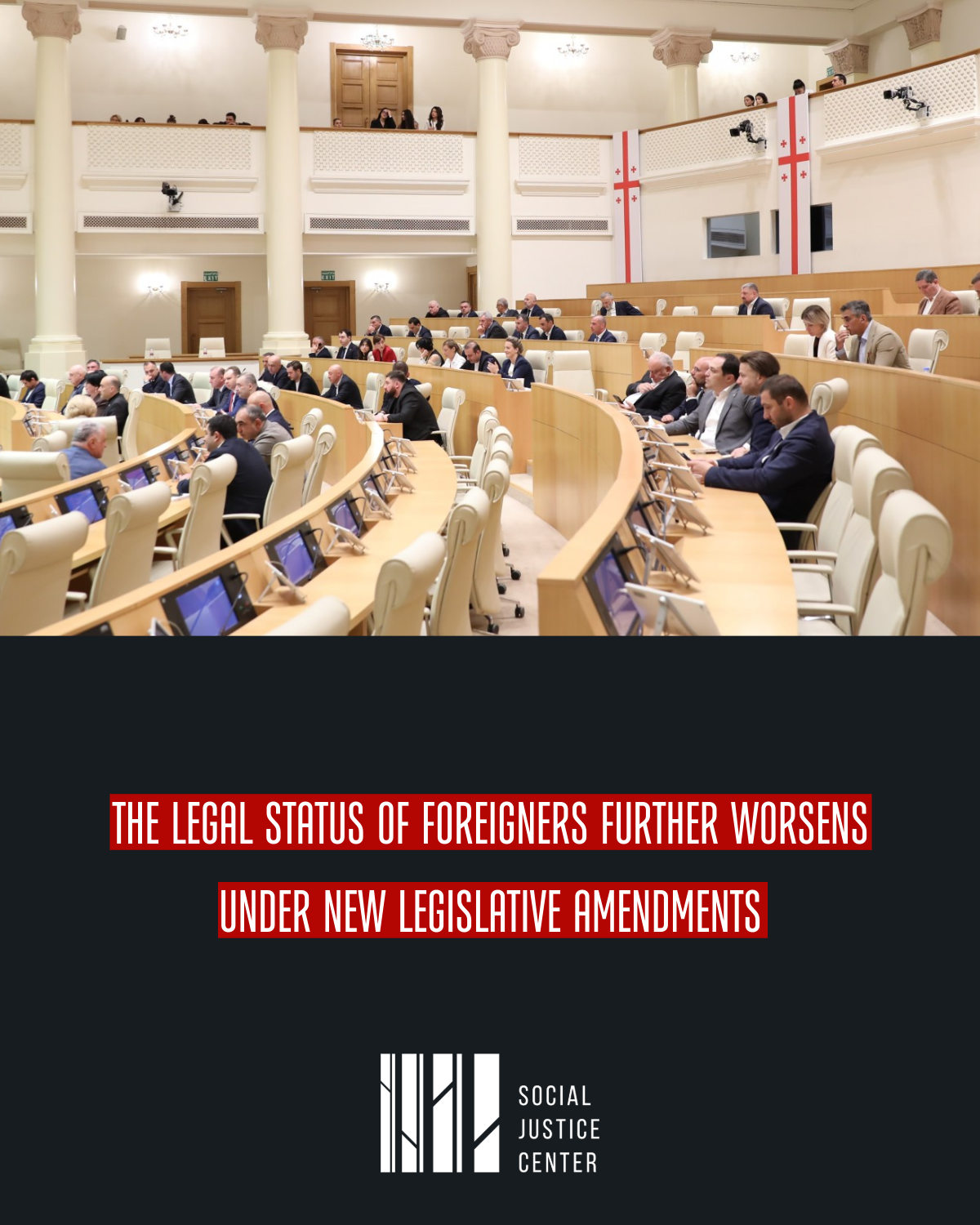საერთო ცხელი ხაზი +995 577 07 05 63


Today, 2 July, "Georgian Dream" will adopt amendments to the Law on Foreigners and Stateless Persons through an expedited procedure. According to the amendment, Article 53(2) is added to the law, which authorizes the Migration Department of the Ministry of Internal Affairs to verify the residence or workplace of a foreigner staying in Georgia without lawful grounds or to check their travel documents, and to enter private property based on a court order. If the co-owner, co-tenant, or employer consents to the inspection, the Migration Department can conduct it without a court order.
Moreover, in urgent cases, the Migration Department may immediately conduct the inspection and submit a request to the court within 24 hours. In this case, the Ministry of Internal Affairs must justify the urgent necessity (for example, the risk of the foreigner fleeing or destroying or hiding travel documents).
During inspections of a foreigner's residence or workplace, the Migration Department is also authorized to question, identify, conduct superficial checks and observations, as well as to apply other preventive and coercive measures as provided by Georgian law.
The initiators of the draft law justify the expedited adoption by citing the difficulty of detecting and identifying illegal migrants. These legislative amendments continue the changes adopted in May 2025, which "Georgian Dream" also passed rapidly, without public discussion or consultation. Previous amendments affected 18 laws, regulating the expulsion of foreign nationals from Georgia, banning their entry, tightening asylum procedures, and introducing new penalties in the Criminal Code. While the prior amendments primarily targeted foreigners who participated in the November-December 2024 protests and were critical or socio-politically active, including human rights defenders and journalists, the current legislation responds to racist and Islamophobic anti-migration hysteria initiated by ultra-right political movements in recent months. This suspicion is reinforced by recent, widely publicized police operations involving the demonstrative detention of illegal migrants. For "Georgian Dream," competing with ultra-right movements to appeal to electorates influenced by racist and Islamophobic narratives is extremely dangerous and risks spreading such narratives further, increasing the likelihood of hate crimes and creating a hostile environment for all foreigners, regardless of their legal status.
Notably, the Migration Department began implementing the measures provided by the amendments even before they took effect; for example, on 27 June, six foreign nationals were detained for immigration violations following inspections of specific locations. Similarly, on 30 June, 14 migrants were detained.
As with previous legislative changes, the draft law’s initiators disregard the seriousness of interference with fundamental rights such as the inviolability of private and family life, home, and correspondence, all protected under Article 8 of the European Convention on Human Rights. For such interference, the state must fully respect the principles of proportionality and necessity and must act only on the basis of an independent court decision. It is alarming that decisions to interfere with these rights are made by a single administrative body and that recourse to the court is not required if the co-owner, co-tenant, or employer consents to the inspection. This provision creates an extremely dangerous precedent whereby an administrative body may, based on an agreement with a private individual, interfere with the fundamental rights of another person. Moreover, such regulation has not been previously recognized in administrative law. Although the draft law mentions "verification of the place of residence," substantively, this is equivalent to a search as defined by the Criminal Procedure Code, which has independent legal grounds and procedures and numerous safeguards protecting individuals from arbitrary state interference. The legislative package under review does not provide migrants with the right to legal counsel or the right to have a third party present during inspections. Although the draft law envisages an appeal mechanism, it is highly problematic that court orders regarding the inspection of a foreigner’s residence, workplace, or other private property, or refusals to allow inspection, are not made public; these orders take immediate effect upon issuance, and appealing them does not suspend their enforcement.
The absence of such procedural and legal safeguards increases the risks of arbitrariness and the risk of discriminatory decisions based on ethnicity or nationality, over which judicial control is practically non-existent. Under conditions of full politicization of state institutions and total disregard for rights-based approaches, such legislative provisions become even more dangerous.
These legislative amendments frame migration issues within a policing and criminalized context, completely devoid of human rights and humanitarian approaches. It is clear that intensified control over migrants is a tool in the hands of an authoritarian regime used to divert attention from social discontent among vulnerable groups and demonize them. This is particularly significant given that the country’s severe economic situation results from unjust state policies, and fears related to migrants are primarily systemic economic fears connected to the existing social and economic order. Unfortunately, some opposition leaders also exploit this rhetoric in a starkly problematic and racist manner, which clearly exemplifies the political instrumentalization of fear.
The website accessibility instruction